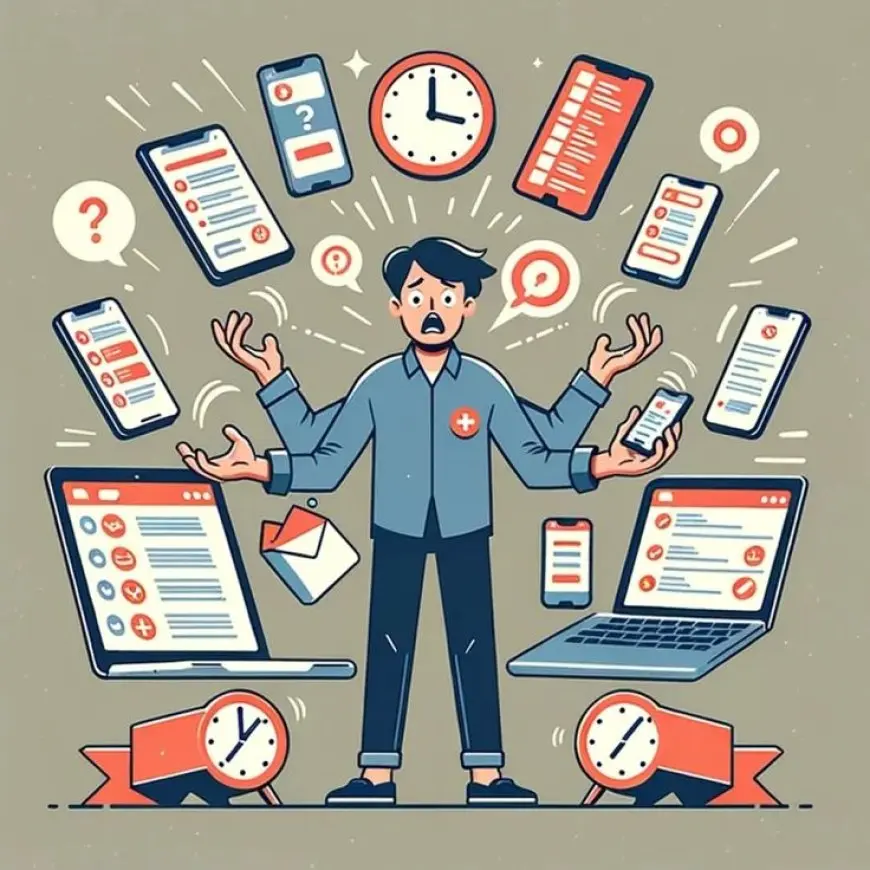How to Manage Work Stress Effectively
How to Manage Work Stress Effectively

Work-related stress is a common challenge faced by many professionals. It can arise from tight deadlines, heavy workloads, interpersonal conflicts, or pressure to perform at a high level. While some level of stress is natural, prolonged stress can lead to burnout, reduced productivity, and negative impacts on both physical and mental health. Effectively managing work stress is essential for maintaining a healthy work-life balance, improving job satisfaction, and promoting overall well-being. Here are several strategies to help manage work stress effectively.
Recognize the Sources of Stress
The first step in managing stress is identifying the root causes. Stress at work can come from various sources, including high expectations, unclear job roles, conflicts with colleagues, or external personal challenges. Taking time to reflect on your work environment and pinpointing specific stressors can help you develop targeted solutions. Understanding what triggers stress allows you to address the issue directly rather than letting it build up over time.
Prioritize Tasks and Set Boundaries
One of the most effective ways to reduce work stress is to manage your time and tasks efficiently. Prioritize your tasks based on their importance and deadlines, and break them down into smaller, manageable steps. Setting clear boundaries is also crucial in preventing work-related stress. Learn to say no when necessary, especially if additional tasks or requests will overwhelm you. It’s important to recognize your limits and ensure that you’re not overburdening yourself.
Take Breaks
Continuous work without breaks can lead to burnout and decreased productivity. Regular breaks throughout the day help recharge your mind and body, improving focus and efficiency. Even short, five-minute breaks can make a big difference in reducing stress and boosting energy. Whether it’s stepping outside for fresh air, stretching, or taking a walk, incorporating these moments into your workday can help maintain mental clarity and reduce stress levels.
Practice Mindfulness and Relaxation Techniques
Mindfulness and relaxation techniques can be highly effective in managing work stress. Practices such as deep breathing, meditation, or visualization can calm the mind and reduce feelings of anxiety. Taking a few moments throughout the day to practice mindfulness can help you stay grounded and focused. These techniques help break the cycle of stress by creating moments of peace and mental clarity, allowing you to approach tasks with a calmer, more balanced perspective.
Exercise Regularly
Physical activity is one of the most powerful tools for managing stress. Exercise releases endorphins, which are natural mood boosters that can reduce stress and anxiety. Regular exercise improves overall health and helps to clear the mind, making it easier to cope with stressful situations. Whether it’s a brisk walk, a yoga session, or a more intense workout, incorporating physical activity into your daily routine can significantly reduce work-related stress.
Build a Support System
Having a strong support system is vital when managing work stress. Surround yourself with people who understand your challenges and can offer emotional support. This could include colleagues, friends, family, or mentors. Talking to others about your stress can help you gain perspective, receive advice, and release pent-up emotions. A supportive network provides a sense of belonging and reassurance, reducing feelings of isolation and helping you manage stress in a healthy way.
Maintain a Healthy Work-Life Balance
Work-life balance is crucial in managing work stress. When work demands bleed into personal time, it can lead to burnout and affect your overall well-being. Set clear boundaries between your professional and personal life, and make time for activities that help you relax and unwind. Whether it’s spending time with family, pursuing hobbies, or simply resting, balancing work with personal time allows you to recharge and reduces stress.
Stay Organized
Disorganization and clutter can add unnecessary stress to your workday. Keeping your workspace tidy and your tasks organized can help you feel more in control and reduce feelings of overwhelm. Using planners, task management tools, or digital calendars can help you stay on top of deadlines and responsibilities. By maintaining an organized approach to work, you can reduce anxiety and increase your efficiency.
Seek Professional Help If Needed
If stress becomes overwhelming and starts to interfere with your daily life, it may be time to seek professional help. Speaking with a counselor, therapist, or coach can help you explore underlying causes of stress and develop coping strategies. Mental health professionals can provide valuable guidance and support in managing stress and preventing burnout. Seeking help is a proactive step toward taking care of your emotional and mental well-being.
Work stress is a common experience, but it doesn’t have to negatively impact your health or productivity. By recognizing the sources of stress, practicing effective time management, setting boundaries, and incorporating relaxation techniques, you can manage stress in a healthy and productive way. Building a support system, staying organized, and maintaining a work-life balance are also essential components of stress management. Taking care of your physical and mental health is crucial in preventing burnout and ensuring long-term success in your career.







